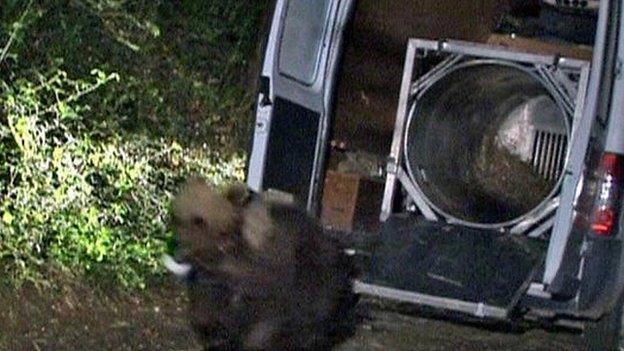Italy official defends killing rare bear after man mauled
- Published
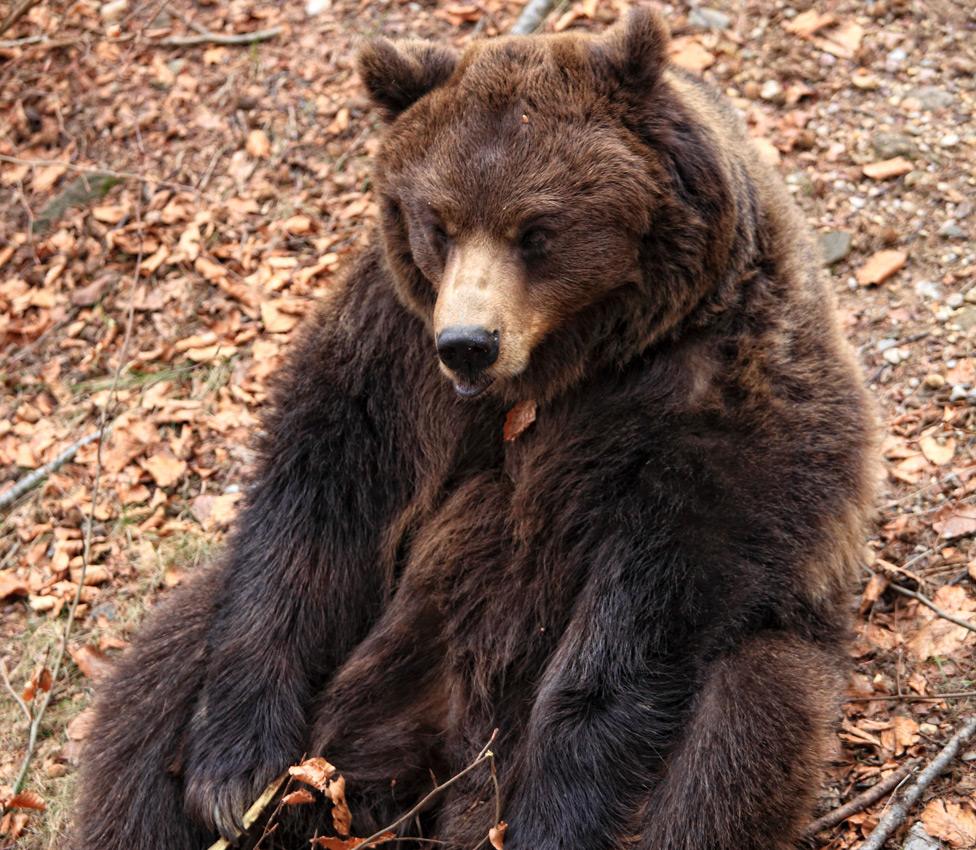
Brown bears now inhabit Italy's Adamello Brenta national park in the Alps
An Italian provincial governor has defended the killing of a rare female brown bear in the Alps, saying it was a threat to humans.
The 14-year-old bear, called Kj2, was shot dead by foresters on Saturday, after it seriously mauled an elderly man walking his dog last month.
Trentino governor Ugo Rossi said the killing would not stop a project to reintroduce bears to the region, but their habitat must be limited.
About 50 bears live in the province.
Conservation groups have protested over the shooting and demanded better management of the EU-funded bear project, called Life Ursus.
Ugo Rossi said the shooting was "an absolute necessity" because of the risk to people at a peak period for tourism.
"Anywhere in the world, when the danger rises above a certain level, the animal has to be killed to ensure people's safety," he said.
'Cold-blooded execution'
Brown bears from Slovenia started to be reintroduced to Trentino in 1999, a region where they had been exterminated by hunters.
Mr Rossi said Life Ursus would continue, but the original plan to let the bears roam widely would have to be revised.
What are brown bears? - BBC Nature
WWF Italy said "bears must not pay the price for human errors" - and pointed out that too many dogs had been let off the lead in the Alpine forests where the bears were roaming.
The organisation urged the authorities to "work to eliminate the causes of such unpleasant episodes".
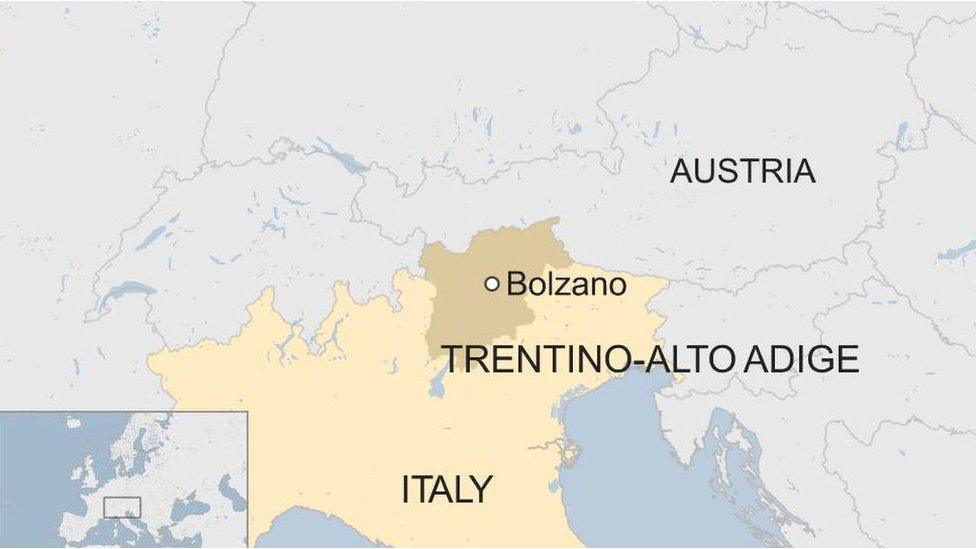
The attack by Kj2 on 22 July happened in the Mt Bondone area. The female bear reportedly had two or three cubs with her.
Shooting Kj2 was "simply a cold-blooded execution, a real crime," the Italian animal welfare group Enpa complained.
Kj2 had been tranquillised and fitted with a radio collar in early August. A DNA sample was taken, and Kj2 was identified as the bear involved in the July attack, because some of her hairs were found at the scene.
The fate of her cubs since Saturday's shooting is not known.
Bear 'likely defending her cubs'
At the time that bears were first reintroduced to Italy's Adamello Brenta national park, the park's website says, more than 70% of locals surveyed agreed with the project.
Niki Rust, a WWF technical adviser in wildlife, told the BBC that Kj2 "might have been doing what any bear would do at this time of year - defend her cubs".
"Bears are not by nature aggressive to humans, but if provoked they can become a problem," she said, adding that raising awareness of how their own behaviour could provoke bears was vital.
"WWF believes you should only reintroduce a species after really strong evidence that the local community accepts the species and that the environment is suitable."
As top predators, bears are important for the ecosystem, helping to control the numbers of deer and wild boar, Dr Rust said.
- Published7 August 2017
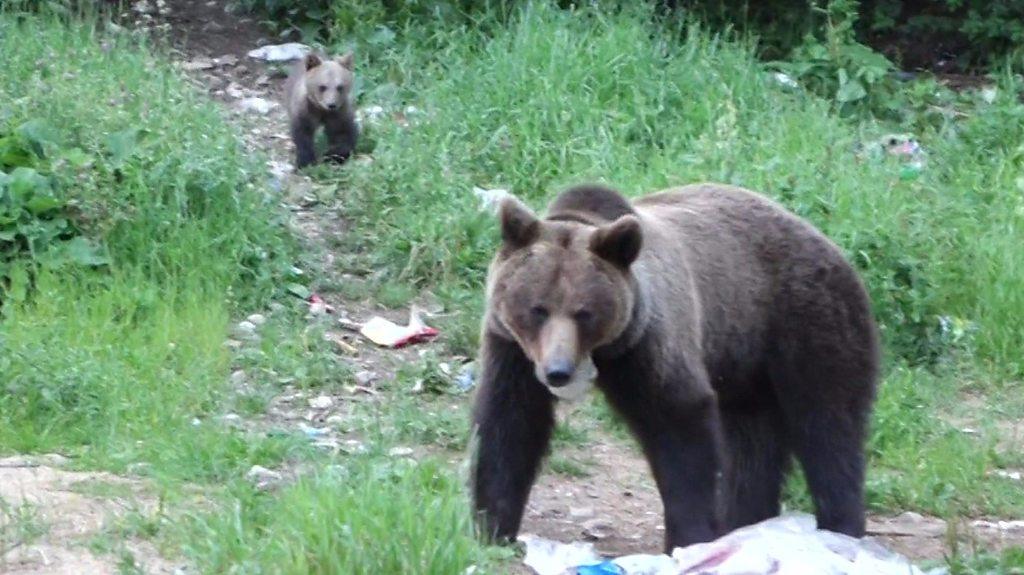
- Published28 March 2016
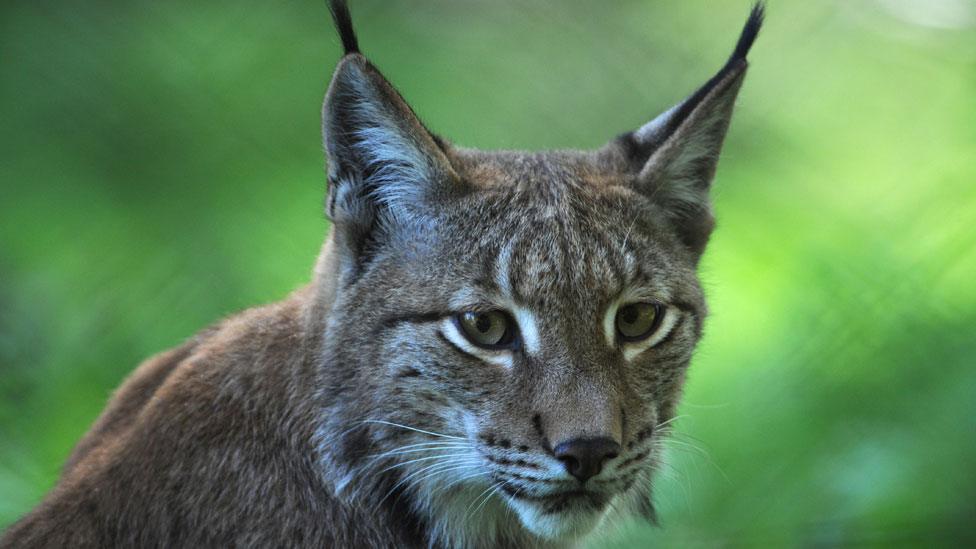
- Published13 October 2015
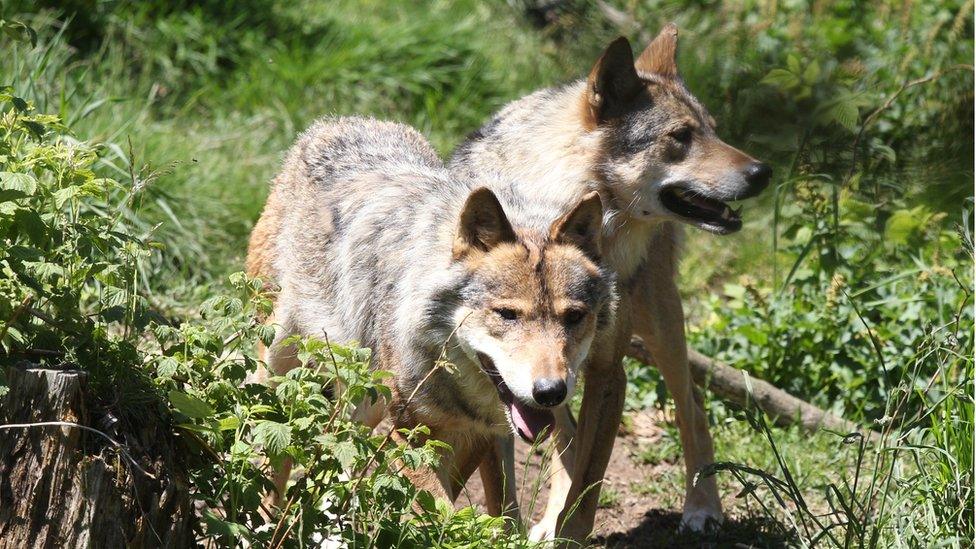
- Published11 June 2014
